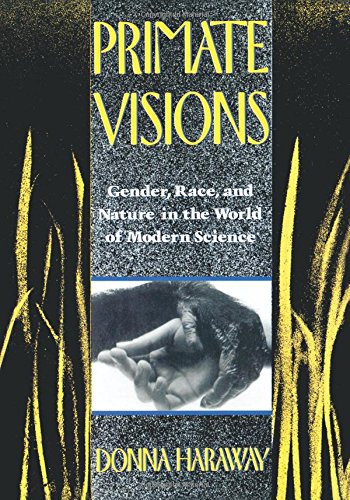Lucie Vágnerová: Sirens/Cyborgs: Sound Technologies and the Musical Body (2016)
Filed under thesis | Tags: · body, cyborg, electronic music, feminism, gender, music, sound art, technology, women
“This dissertation investigates the political stakes of women’s work with sound technologies engaging the body since the 1970s by drawing on frameworks and methodologies from music history, sound studies, feminist theory, performance studies, critical theory, and the history of technology. Although the body has been one of the principal subjects of new musicology since the early 1990s, its role in electronic music is still frequently shortchanged. I argue that the way we hear electro-bodily music has been shaped by extra-musical, often male-controlled contexts. I offer a critique of the gendered and racialized foundations of terminology such as “extended,” “non-human,” and “dis/embodied,” which follows these repertories. In the work of American composers Joan La Barbara, Laurie Anderson, Wendy Carlos, Laetitia Sonami, and Pamela Z, I trace performative interventions in technoscientific paradigms of the late twentieth century.
The voice is perceived as the locus of the musical body and has long been feminized in musical discourse. The first three chapters explore how this discourse is challenged by compositions featuring the processed, broadcast, and synthesized voices of women. I focus on how these works stretch the limits of traditional vocal epistemology and, in turn, engage the bodies of listeners. In the final chapter on musical performance with gesture control, I question the characterization of hand/arm gesture as a “natural” musical interface and return to the voice, now sampled and mapped onto movement. Drawing on Cyborg feminist frameworks which privilege hybridity and multiplicity, I show that the above composers audit the dominant technoscientific imaginary by constructing musical bodies that are never essentially manifested nor completely erased.”
PhD Dissertation
Publisher Graduate School of Arts and Sciences, Columbia University, 2016
Advisor: Ellie M. Hisama
242 pages
Alexander Kluge, Oskar Negt: History and Obstinacy (1981–)
Filed under book | Tags: · capitalism, commodity, knowledge, labour, politics, power, production, time, violence, war, women

“If Marx’s opus Capital provided the foundational account of the forces of production in all of their objective, machine formats, what happens when the concepts of political economy are applied not to dead labor, but to its living counterpart, the human subject? The result is Kluge and Negt’s History and Obstinacy, a breathtaking archaeology of the labor power that has been cultivated in the human body over the last 2,000 years. Supplementing classical political economy with the insights of fields ranging from psychoanalysis and phenomenology to evolutionary anthropology and systems theory, History and Obstinacy examines the complex ecology of expropriation and resistance as it reaches down into the deepest strata of unconscious thought, genetic memory, and cellular life. First published in 1981, this epochal collaboration has now been edited, expanded, and updated by the authors in response to global developments of the last decade to create an entirely new analysis of “the capitalism within us.””
First published as Geschichte und Eigensinn, 3 vols., Zweitausendeins, Frankfurt am Main, 1981.
Translated by Richard Langston et al.
Edited and with an Introduction by Devin Fore
Publisher Zone Books, New York, 2014
ISBN 1935408461, 9781935408468
541 pages
via Baykamber
Reviews: Christopher Pavsek (New German Critique 1996), Stewart Martin (Radical Philosophy 2015), Tara Hottman (Qui Parle 2015), Adrian Wilding (Marx & Philosophy 2015).
PDF (14 MB, updated on 2021-7-12)
Video complements
Donna Haraway: Primate Visions: Gender, Race, and Nature in the World of Modern Science (1989)
Filed under book | Tags: · animal, biology, capitalism, family, feminism, gender, history of science, human, man, monkey, nature, primatology, race, science, sex, sexuality, technology, theory, women

“Haraway’s discussions of how scientists have perceived the sexual nature of female primates opens a new chapter in feminist theory, raising unsettling questions about models of the family and of heterosexuality in primate research.”
This “large book may be read from start to finish as a chronological and thematic survey of twentieth-century primatology. … But each chapter is simultaneously history of science, cultural studies, feminist exploration, and engaged intervention into the constitutions of love and knowledge in the disciplined crafting of the Primate Order. … My placing this account of primatology within SF–the narratives of speculative fiction and scientific fact–is an invitation for the readers of Primate Visions–historians, culture critics, feminists, anthropologists, biologists, anti-racists, and nature lovers–to remap the borderlands between nature and culture.” (from the Introduction)
Publisher Routledge, 1989
ISBN 0415902940, 9780415902946
ix+486 pages
Reviews: George E. Marcus (Science 1990), Alison Jolly and Margaretta Jolly (New Scientist 1990), Robin Dunbar (NY Times 1990), Louise Krasniewicz and Michael Blitz (Discourse 1990), Anne Fausto-Sterling (J Hist Biology 1990), Susan Cachel (Am J Primatology 1990), Meredith F. Small (Am J Physical Anthropology 1990), Sarah Franklin (J Hist Sexuality 1990), Matt Cartmill (Int J Primatology 1991), M. Lynn Byrd (H-Ideas 2001).
PDF (48 MB, added on 2021-3-10)
EPUB (3 MB)

